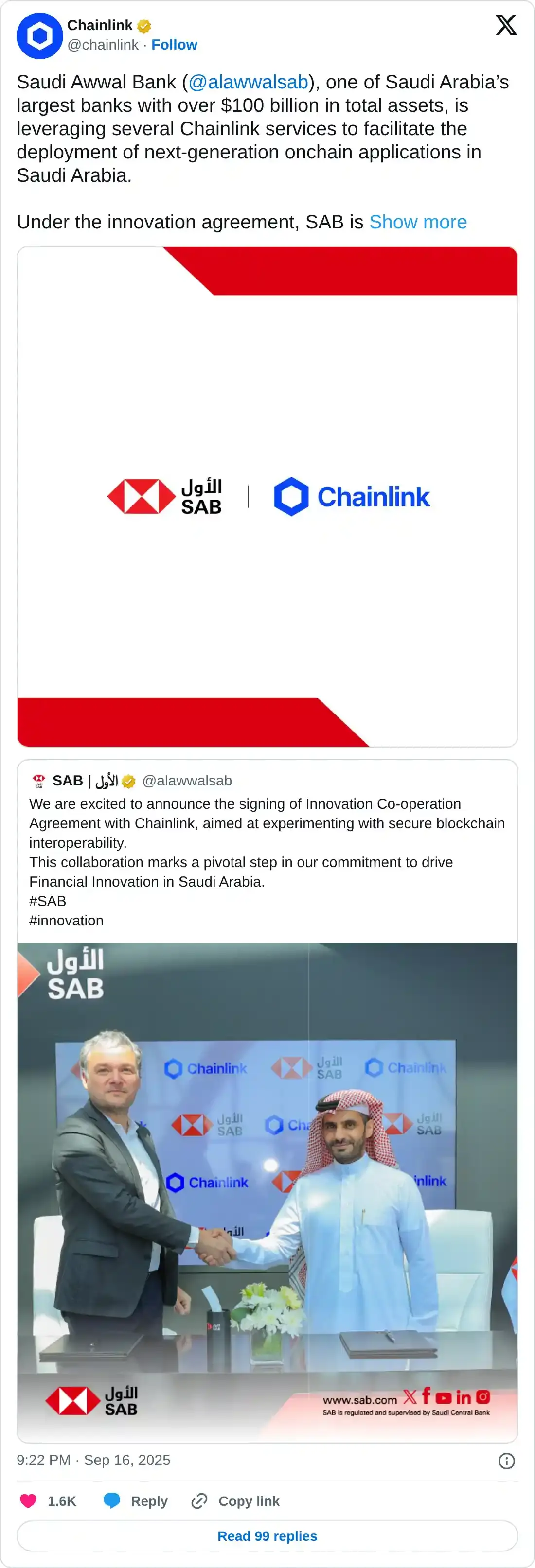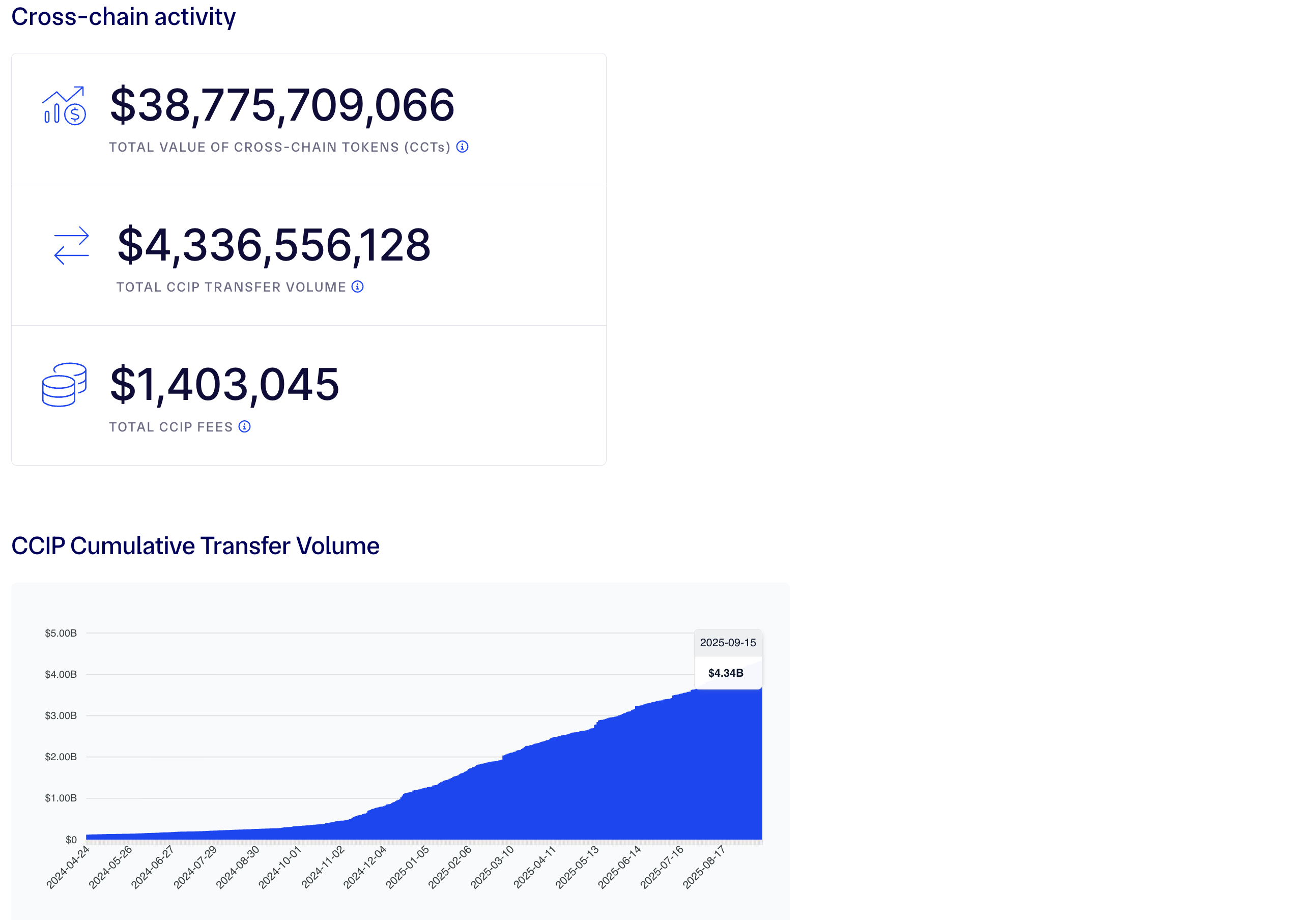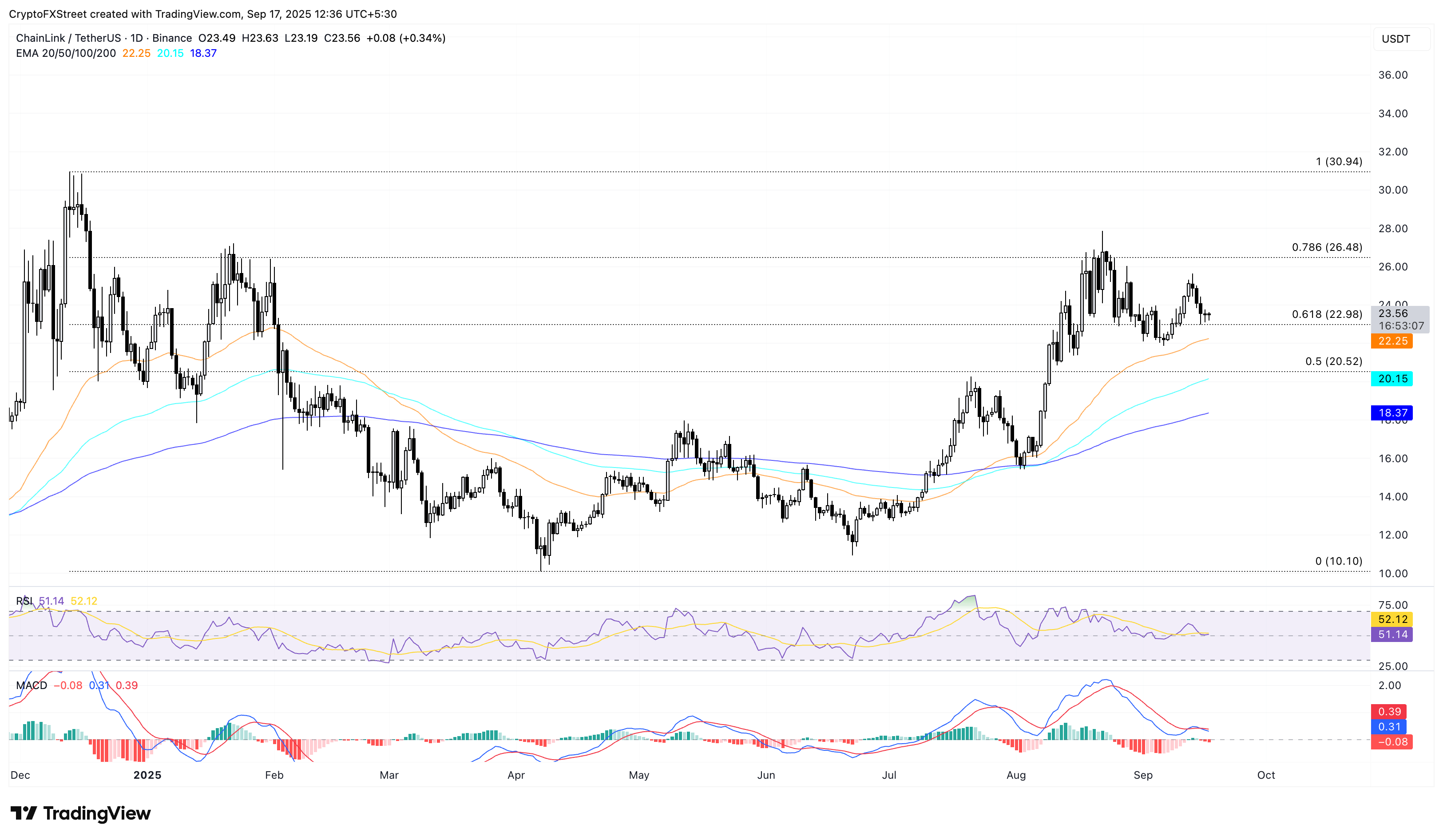Chainlink’s Game-Changing Partnership with Saudi Awwal Bank Set to Revolutionize Blockchain Finance in Saudi Arabia
Chainlink just dropped a seismic partnership that's shaking up Middle Eastern finance—Saudi Awwal Bank is diving headfirst into blockchain integration.
Why This Matters
Saudi Arabia's financial landscape is getting a Web3 makeover. Traditional banking meets decentralized oracles—this isn't just another pilot program. It's a full-scale deployment that could redefine how institutional players interact with blockchain infrastructure.
The Tech Behind the Move
Chainlink's oracle network will provide real-world data feeds to Saudi Awwal Bank's systems. Think market prices, settlement data, and compliance triggers—all automated through smart contracts. No more manual reconciliation headaches that make bankers want to throw their spreadsheets out the window.
Regional Implications
This partnership positions Saudi Arabia at the forefront of blockchain adoption in the GCC. Other regional banks will be watching closely—nobody wants to be the last dinosaur still using fax machines for international transfers.
The Bottom Line
While traditional finance still can't decide whether crypto is a revolution or a nuisance, Saudi Awwal Bank is betting real money on blockchain infrastructure. Maybe they've finally realized that being early beats being sorry—unlike those hedge fund managers who still think 'DeFi' is a typo.
Saudi Arabia’s First Bank ventures into blockchain technology with Chainlink
The First Bank of Saudi Arabia, Saudi Awwal Bank, with over $100 billion in total assets, announced a partnership with chainlink on Monday, marking the first step in its new on-chain finance applications. With this Innovation Co-operation Agreement, SAB developers will leverage Chainlink’s Cross-Chain Integration Protocol (CCIP) and Chainlink Runtime Environment (CRE).
The CRE will provide a modular platform for building applications and accessing multiple Application Programming Interfaces (APIs), while the CCIP will facilitate cross-chain transfers.

Chainlink’s official data shows that the CCIP is active on 60 different chains, holding a cumulative transfer volume of $4.34 billion, with the total value of cross-chain tokens surpassing $38.77 billion. Additionally, DeFiLlama ranks Chainlink as the largest decentralized oracle network based on Total Value Secured (TVS) of over $62 billion.

CCIP activity. Source: Chainlink
Doubling down on financial innovation, SAB also announced that it had signed a similar agreement with Wamid, a subsidiary of Saudi Tadawul Group, to begin experimentation on tokenizing of capital markets, which is valued at almost $2.32 trillion based on Tuesday’s Saudi Exchange report.

With the signed agreements, Saudi Arabia’s Crown Prince Mohammed bin Salman's Vision 2030 aims to reduce the country’s economic dependencies on Oil revenues.
Chainlink holds at crucial support as bullish momentum wanes
Chainlink trades above $23.00 at press time on Wednesday, holding above the 61.8% Fibonacci retracement, drawn from the December 13 high of $30.94 to the April 7 low of $10.10, which acts as a crucial support level at $22.98.
Following a Doji candle formation on Tuesday, LINK token price action teases a potential V-shaped reversal. A potential rise in the oracle token price could target the 78.6% Fibonacci retracement level at $26.48.
Indicators on the daily chart indicate a lack of momentum as the Relative Strength Index (RSI) hovers NEAR the halfway line at 51. Additionally, the Moving Average Convergence Divergence (MACD) line remains steady after crossing below its signal line, reflecting a loss in bullish momentum.

LINK/USDT daily price chart.
On the downside, if Chainlink falls below $22.98, it could extend the decline to the 50% Fibonacci retracement level at $20.52.

